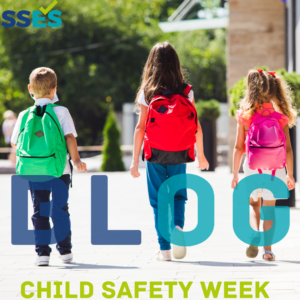Firstly, we hope you all enjoyed the extended bank holiday weekend, however you spent it 😊
This week is Child Safety Week, from 6th to 12th June, which seemed too important not to blog about when all our EPA standards are around early years, children and young people.
According to the website ‘Child Safety Week is an annual community education campaign run by the Child Accident Prevention Trust (CAPT), acting as a catalyst for thousands of safety conversations and activities UK-wide.
We help families build confidence and skills in managing the real risks to children’s safety. We want all children to have the freedom to grow and learn, safe from serious harm.
This year, Child Safety Week runs from Monday 6th to Sunday 12th June, with the theme Safety in mind.’
You can find out about the week in full at this link.
Regular readers will know that our directors are foster carers and they say that safety is always top of their concerns, primarily because they have different ages and stages and a home that has been safe for a teen is suddenly not safe for a younger child. Babies and toddlers have the habit of developing skills overnight! So one day they will be perfectly safe on the changing mat, the next day they have learnt to roll over. Being constantly aware of dangers is part of being a carer, whether it is for early years, children or young people – dangers are present, the dangers just change as they develop. Suzanne tells me that when she owned the nurseries there were 3 areas she always worried about – head injuries, losing a child and choking. And, as a foster carer, they are still her main concerns
The Child Accident Prevention Trust have their own list of the main causes of accident and injury:
- Ages and Stages (as mentioned earlier)
- Burns and Scalds
- Button batteries
- Choking
- Cycle safety
- Drowning
- E-cigarettes
- Electric shocks
- Falls
- Fire safety
- Garden safety
- In-car safety
- Magnets
- Making sense of accidents
- Pedestrian safety
- Poisoning
- Safety equipment
- Strangulation
- Suffocation
- Toy Safety
The website above is full of information about how to keep children safe, please pop by and maybe sign up for their emails to keep up to date with safety advice.


